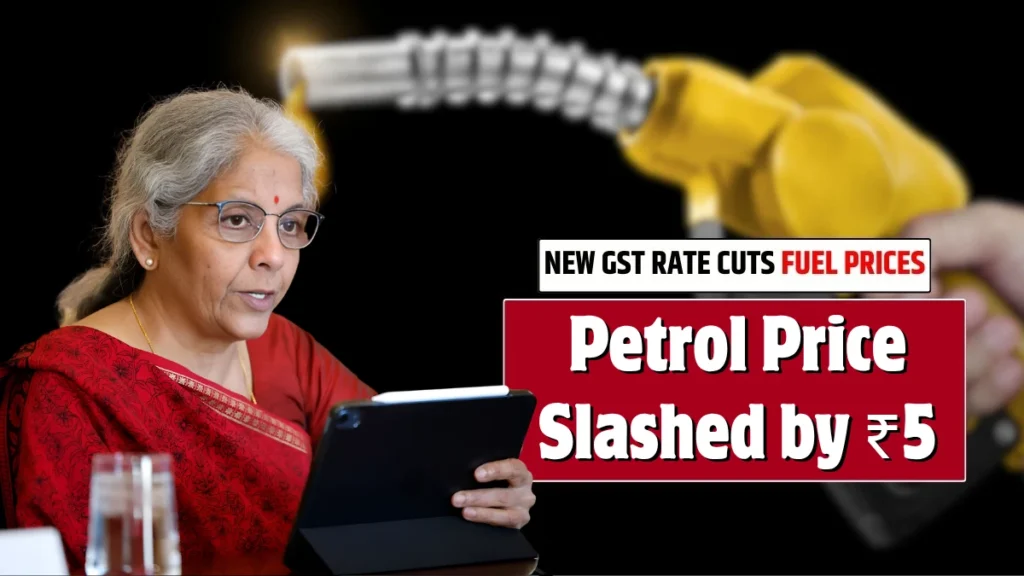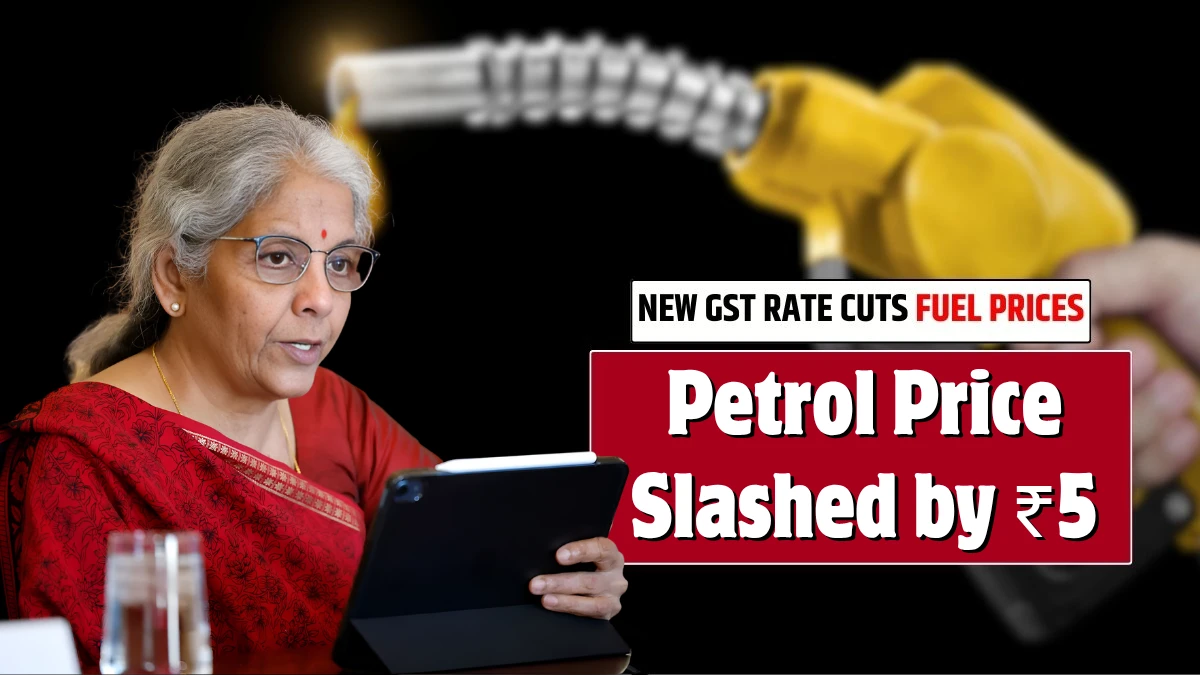The recent announcement of a ₹5 reduction in petrol prices has brought relief to consumers across the country. This significant price drop is a direct result of the government’s decision to cut the Goods and Services Tax (GST) on petrol. For many, this move comes as a welcome change amid rising inflation and economic challenges. The price revision is expected to impact not only individual commuters but also the broader economy in numerous ways.

Impact Of GST Reduction
The GST cut on petrol was a strategic move by the government to ease the financial burden on citizens. Previously, petrol was subjected to a high GST rate, which increased the retail price. By slashing the GST, the government has lowered the tax component, resulting in the ₹5 per litre price cut. This move aims to make fuel more affordable and stimulate economic activity by reducing transportation and logistics costs.
Economic Relief For Consumers
For the average consumer, petrol price cuts mean more disposable income. With fuel costs dropping, people can save money or spend it on other essentials, boosting demand in various sectors. This could help revive consumption, which had been sluggish due to high living costs. In rural areas, where transport expenses form a major part of daily budgets, this reduction can significantly improve household economics.
Effects On Transportation Sector
The transportation industry, both commercial and private, stands to benefit from lower fuel prices. Freight and passenger transport companies will experience reduced operational costs, which might eventually translate to lower fares and freight charges. This can ease the price pressures on goods and services, benefiting businesses and consumers alike. Over time, the cost savings could help transport operators improve profitability or pass on benefits to customers.
Influence On Inflation Trends
Petrol prices often have a cascading effect on inflation because fuel is a key input for many goods and services. A reduction in petrol price is likely to moderate inflationary pressures, at least in the short term. As fuel costs decline, the prices of essential commodities transported across the country could stabilize or even fall. This could bring some respite to consumers struggling with rising prices in other areas.
Political Implications And Public Sentiment
The petrol price cut can also have notable political repercussions. Fuel prices are often a sensitive issue for voters, and reductions can improve public sentiment towards the government. In times of economic uncertainty, such measures can bolster confidence in leadership and strengthen the government’s standing. This price cut may be seen as a proactive step in addressing citizens’ concerns about affordability and cost of living.
Challenges For Government Revenue
While the GST reduction provides relief to consumers, it poses challenges for government finances. Petroleum products have traditionally been a significant source of tax revenue. By reducing the GST rate, the government risks a shortfall in its tax collections. However, officials expect that increased economic activity spurred by lower fuel prices could offset this loss over time. Balancing fiscal needs and consumer welfare will be crucial in the coming months.
Long-Term Market Impact
In the long term, the petrol price reduction could reshape market dynamics. Lower fuel prices might encourage more vehicle usage and increase demand for petrol. This could stimulate the automobile and ancillary industries. On the other hand, it may delay the shift towards electric vehicles and greener alternatives, which are often driven by higher fuel costs. Policymakers will need to consider these factors while framing future energy strategies.
Consumer Behavior Changes Expected
With petrol becoming more affordable, consumer behavior is likely to shift. People might prefer personal vehicles over public transport due to cost benefits, which could impact public transit revenues and traffic congestion levels. Additionally, businesses may expand operations or increase delivery frequencies because of lower logistics costs. These changes could influence urban planning and infrastructure needs in the near future.
Conclusion On Price Cut
The ₹5 reduction in petrol prices following the GST cut marks an important development in India’s economic landscape. It offers immediate relief to consumers and businesses, promising to stimulate demand and curb inflation temporarily. However, it also raises important questions about fiscal sustainability and environmental impact. Moving forward, balancing affordability with economic and ecological goals will remain a key challenge for policymakers.
Disclaimer
The information provided in this blog post is for general informational purposes only. While efforts have been made to ensure accuracy, petrol prices and tax policies are subject to change by government authorities. Readers are advised to verify the latest updates from official sources before making any financial or purchasing decisions. The author and publisher do not assume any responsibility for errors or omissions, or for any outcomes resulting from the use of this information.
